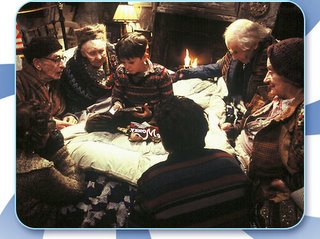This week I realized that although I keep this blog and I do other online work, I'm not quite as online savvy as I thought. I was at the library and saw ttyl by Lauren Myracle and decided to check it out. The first thing I had to figure out was what IM phrase does ttyl stand for-- I believe it's talk to ya later. I could be wrong. This entire book is written in IM format-- the different fonts, the shortcut words, the fragmented thought...
When I think about children's literature, I realize that it cannot help but to be linked to popular culture. While the genre of realistic fiction shows this the most obviously, all of the genre's of children's literature have some connection to what is happening in modern times. There is always a degree of intertextuality that cannot be avoided between what is being written for the child reader and what is going on in pop culture.
ttyl on one had dates itself because the characters watch television shows like Kim Possible and That 70's Show. They make fun of younger siblings who watch 7th Heaven and Lizzie McGuire. But, the book also shows classic school curriculum-- one character is reading The Great Gatsby for her English class.
The thing that strikes me the most about the novel is that it is written entirely as IM posts. Novels that were unique used to be written as letters or journal entries, but now media has become a tie in. The novel talks about the girls hanging out at school, sending email, talking on the phone, spending the night at one another's homes, but the text only occurs in IM, and the girls decide "some things r easier to talk about over the computer" (208). Now, media isn't just a supplement to a person's life. It is an element of that person's life. This book does not show media as a means to an end-- it is the end in and of itself.
Although I didn't think this was the most interesting book I've ever read, the plot was a little too predictable, the formatting fascinates me.
but, g2g, l8r
Dear Me...
12 years ago


